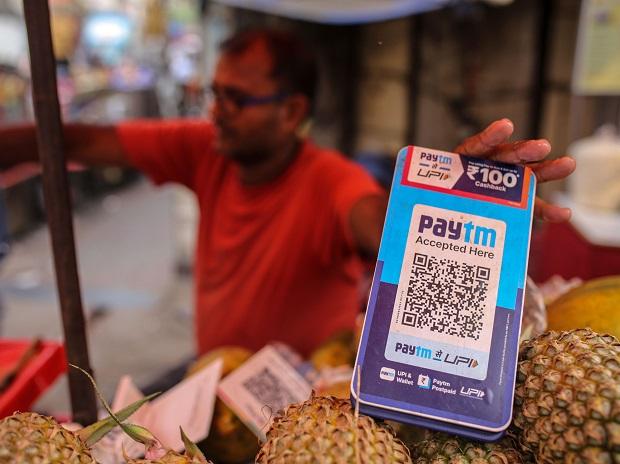The National Payments Corporation of India (NPCI), which operates India’s flagship payments platform, Unified Payments Interface (UPI), on Wednesday clarified that about 99.9 per cent of the total transactions on UPI are done by linking bank accounts to any UPI enabled app and these account–to–account transfers will remain completely free for customers and merchants.
On March 24, NPCI issued a circular on interchange fees applicable for merchant transactions through prepaid instruments (PPIs) on UPI platform. This comes after the Reserve Bank of India (RBI) made it mandatory for the PPI’s to be part of the interoperable UPI ecosystem.
As a result, from April 1, wallet holders will be able to use their balances to pay merchants with any UPI QR code, paving the way for interoperability of digital wallets on the UPI platform. These transactions will attract an interchange of 1.1 per cent of the transaction value, if the value is above Rs 2,000. The interchange fees have to be by the merchant’s bank to the issuer of the wallet, when such a transaction takes place.
Further, the prepaid instrument (PPI) issuer, that is, the wallet, will have to pay 15 basis points as wallet loading service charges to the remitter bank (account holder’s bank) for loading transaction value greater than Rs 2,000 on the wallet. However, interchange feel will not be required to pay for peer-to-peer (P2P) transactions and P2PM (peer to small merchant) transactions between the bank account and the PPI wallet, NPCI’s circular said.
Essentially, this will give one more option to consumers to do their day-to-day transactions. “With this addition to UPI, the customers will have the choice of using bank accounts, RuPay credit card, and prepaid wallets on UPI enabled apps,” NPCI said.
According to Mihir Gandhi, Partner & Leader-Payment Transformation, PwC India, this is a step in the right direction to make the UPI pricing market-driven and competitive to incentivise the UPI players to recover costs and make additional investments as required. “The interoperability amongst PPIs via UPI will make PPIs more attractive for various use cases and ultimately increase the number of digital payment transactions,” he added.
Paytm Payments Bank – which accounts for 60% of the wallet transactions – said that all its full KYC wallet customers will now be able to make payments on every UPI QR code and online merchant where UPI payments are accepted. Consequently, the bank will earn 1.1 per cent interchange revenue when Paytm Wallet customers (i.e., the KYC wallets issued by Paytm Payments Bank) make payment on merchants acquired by other payment aggregators or banks. And, the bank will pay 15 bps of charges for adding more than Rs 2,000 using UPI, and in turn will also earn 15 bps when any other wallets use the bank to add more than Rs 2,000 using UPI.
According to a research note issued by Citi, interoperability of wallets with UPI significantly improves their salience. Wallets can now be used on UPI rails (250 million QRs as of February 23) and unlike UPI itself, have better convenience (load wallet once and use multiple times vs entering UPI code at every instance of payment). “Since consumers can load their wallets with money from anywhere (credit card, BNPL, debit card, net banking etc), the new rules also likely create a mechanism for using any instruments via UPI, albeit indirectly, because consumers have to load wallet with instrument of their choice and then use the wallet at UPI QR-codes,” the note said.
The Citi note said Paytm wallets will gain universal acceptance across all UPI QRs and devices. Also, since the interchange fees is to be paid to the wallet issuer, Paytm and other payment apps will pay interchange to Paytm Payments Bank when Paytm wallets are used at 250 million UPI QR codes. Further, since wallet loading charges will be paid by issuers like Paytm Payments Bank to remitter banks, for Paytm itself, these changes impose a regulator defined interchange commercials in place of the extant bilaterally-agreed commercials between Paytm and Paytm Payments Bank and is therefore a positive from governance perspective.
A Morgan Stanley report stated that this move of NPCI could result in additional revenues for Paytm Payments Bank (49 per cent owned by One97 Communication) when Paytm’s full KYC wallet customers transact using their wallets on merchants acquired by other service providers. “The exact revenue benefit will be a function of Paytm wallet usage on non-Paytm QRs/online merchants. If well adopted by Paytm wallet users/merchants, the benefit could be meaningful, as Paytm Payments Bank is the largest issuer of KYC wallets with more than 100 million users”, the note said.
-
Account-to-Account transactions account for 99.9% UPI transactions
-
These transactions continue to remain free for customers & merchants
-
NPCI introduced interchange of 1.1% on PPI based merchant transaction via UPI
-
PPI issuer will pay 15 bps as wallet loading service charge
-
Interchange will not apply to P2P and P2PM transactions
-
The pricing structure will be reviewed on or before September 2023



